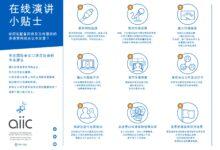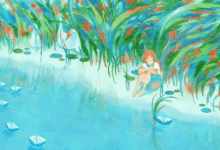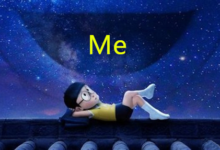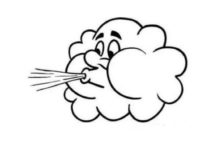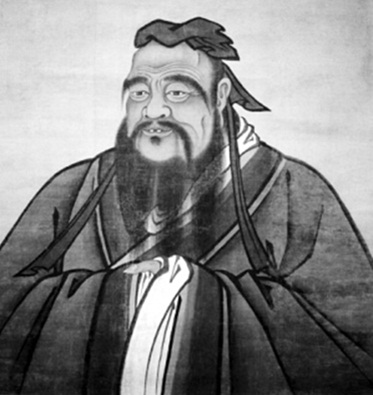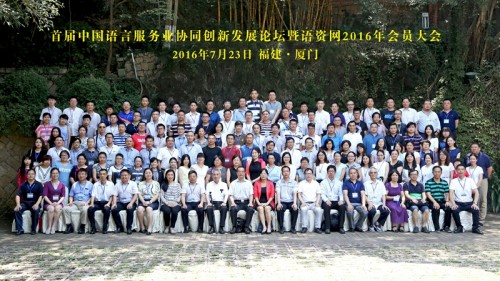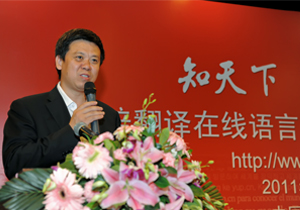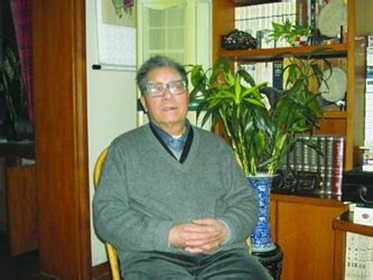Administrators and authority figures like to speak in clichés. All my life I heard the same trite line: “You can tell a lot about a person by the friends they keep.” The black sheep of the honors program, I hung out with the so-called “losers.” During my freshman year, not a day went by when a teacher or family member did not deride my closest friends and warn me that by hanging out with “bad seeds” I would fall into a downward spiral, never graduate college, and have a miserable life. They thought that they had me figured out.
One day, while my ninth grade math teacher, Mr. Pedersen, was reviewing some math concepts with me, my friend Mariam ran by the classroom, stuck her head in the doorway, called out: “Hi Yassee, ” and then ran away. Mr. Pedersen looked at me coldly and said with a scowl: “How can you call yourself an Honors student? A real honors student doesn’t associate with people like that!” I wanted to ask him how he could call himself a teacher; after all, a real teacher is supposed to want to help everyone. Instead, I sat silent, stunned by his ignorance and cruelty. He wanted me to drop my childhood friends simply because they didn’t place the same importance on schoolwork that I do. If he had thought before speaking, he would have realized that people like him, rather than people like my friends, are better able to turn good students into poor ones by discouraging them with ridiculous comments. I would never slight Mariam. One of my closest friends in freshman year, she was also a below average, non-college bound student. Many of the adults in my life, especially my parents and teachers, would look at those closest to me: Mariam, Alisa, Zena, Lianne, and Marvin, and ask how I could call these “low-life losers” my friends. But such questions show a lack of understanding of the nature of friendship.
Friendship is unconditional and uncritical, based only on mutual respect and the ability to enjoy each other’ s company. These authority figures never saw the way one of us could do something outrageous, and the rest of us would joke about it for days. We could have fun doing absolutely nothing at all―because the company we provided each other with was enough. Rather than discussing operas, Lewinsky, or the weather, we enjoyed just hanging around each other without any one of us trying to outsmart the others. Still, I realize that these adults had a point to be concerned about the direction my friends were heading; I also was concerned for them, but I wasn’t about to leave them. Many times I would advise my friends that some activity may be dangerous or to think things through before doing something, but I would never claim to hold the moral high ground and to condescend to them. When Marvin would begin rolling joints, when Alisa would tell me she skipped school because of a hangover, or when Mariam would tell me that her new boyfriend was in a street gang, I expressed my discomfort with their actions. However, I never blackmailed them with the threat of taking my friendship away. Contrary to the commercials on television, you can have friends who use drugs. In fact, probably everyone does without realizing it.
In my junior year, AP U.S. History class, the teacher, Mr. Jacobsen, addressed the class saying: “I bet none of you have ever seen a drug deal!” With a look of absolute certainty and an odd smile on his face he scanned the room. “I’ve seen a drug deal before, ” I answered. Everyone in the room turned to look at me, either gasping or in disbelief. I realized that maybe my experiences thus far were atypical of most of my honor student friends. Despite our varying experiences, I still maintained many friends who were excellent students. Yogita, Nit in, Hans, Vishal, Saurabh, Anuj, Nick, and I have had almost every class together since eighth grade. Nit in and I both love to shop and eat. What is different about shopping with Nit in, however, is that we argue about the necessity of a high sales tax or discuss the effectiveness of the acting welfare system. Yogita and I always go to the library together and “pull all niters” at her house. While I do enjoy accomplishing my academic goals and working with this highly motivated group of friends, I also enjoy “the losers, ” who to me seem much more sincere and loyal. In retrospect, I wouldn’t change my ninth grade experience, because I learned many of life’s important lessons from my friends and the ignorance of teachers and administrators. It’s sad to say, but in many of my friends’ dangerous actions, I saw what I never wanted to become. In the future, I’ d like to continue helping adolescents, in addition to my studies. I have been fortunate thus far in being able to reach out to them through programs like C.H.A.N.G.E. For my efforts, I have been recognized and was honored to receive the 1998 Operation Pride Youth Award for my dedication to helping other kids live a substance free lifestyle. My familiarity with teenagers from all walks of life greatly enhances my ability to both identify with and influence others. I will be a successful adult in the future because I am willing to work with everyone and to give everyone a chance. Hopefully, I will also have the chance to change other kids’ lives for the better.
友谊--我最宝贵的财富
目光短浅的领导以及权威人士都喜欢用些陈腔滥调教训别人。一成不变的话语总是在我耳边:“物以类聚,人以群分。”我算是优等生中的另类,经常与所谓的“后进生”打成一片。大学一年级的时候,没有一天不是在老师或家里的长辈们对我的密友喋喋不休的嘲笑中度过的,他们警告我如果继续和这些“坏东西”混在一起,我就会陷于万劫不复的境地,从此堕落,大学毕业无望,过着凄惨悲凉的生活。在他们看来,这些都是忠言逆耳,教导我辨明是非黑白。
有一天,九年级的数学老师彼得森先生正和我复习有关数学概念时,朋友玛丽安恰好经过教室,探头叫了一声“嗨,亚斯”就跑开了。彼得森先生冷眼瞧我,不悦地说:“你怎么配得上‘优秀学生’这个称号呢?真正的‘优秀学生’是不会和这些人搅在一起的。”我愣住了。我想问,他又怎样能称得上是真正的老师呢;毕竟,真正的老师应该是乐于帮助别人的。但是,我选择了保持沉默,只是静静地坐着,为其浅薄和冷酷而心惊;他希望我和童年的玩伴划清界线,理由仅仅是因为他们没有像我那样重视学业。如果彼得森先生经过深思熟虑后才说这番话,他就会意识到,不是我的朋友,而是他们这种戴有色眼镜、言辞尖酸刻薄的人更容易让好学生变成差生。我绝不会看不起大学一年级的好友之一玛丽安,虽然她是属于成绩中下,与大学无缘的那种人。我身边的很多成年人,尤其是老师和父母,很难理解我怎么可以和玛丽安,阿莉萨,赞娜,马文这些“彻底的失败者”如此亲密。他们的疑惑恰恰说明他们对友谊本质缺乏理解。
友谊是无条件、不带偏见的;彼此相互尊重,并且喜欢和对方在一起,就是友谊。这些权威人士永远不会明白为什么我们会为一些小事快乐好几天。我们在一起的时候即使什么也不做,也会感到开心――因为大家聚在一起就已足够;不去谈论戏剧、莱温斯基或者天气,大家只是享受那份闲来荡去的惬意,谁也不用绞尽脑汁想着怎样一较高下,分清孰优孰劣。然而,我知道那些大人很担心我朋友的将来;我也有同感,但并没有打算要和他们绝交。所以我常常提醒他们有些活动是很危险的,或是做某件事之前要深思,我绝对不会把道德标准束之高阁而去参与他们其中;当马文想尝试一下大麻的滋味,或者阿莉萨告诉我她因为宿醉而逃课,又或者玛丽安说她的新男友是街上的一个小混混时,我只是为他们感到不安,但我从来没想到以绝交威胁他们。和电视广告不同,你们也可能会结交吸毒的朋友。实际上,也许每个人都有这样的经历,但自己并没有意识到。
大三时, 跳级生的美国历史课程上,(注,AP U.S. History class跳级生美国历史课程,具有一定难度,相当于大学一年级的课程,可以积学分。此课程是对美国殖民地时期-现在历史地概述,共两个学期。)亚葛布森老师对全班说:“我敢打赌,你们从来没有见过毒品交易!”然后用确信的目光扫视了一下全班,脸上呈现出奇怪的笑容。“我见过!”我回答道。每个人的目光都聚焦在我身上,或倒吸了一口气或呈现出不信任。我意识到自己也许是优等生中的一个另类。尽管, 我们的经历各有不同,我仍和一些优秀生成为好朋友。我和友吉达、尼丁、汉斯、维萨儿、萨罗、安纽、尼克自从八年级后几乎从未缺课。我和尼丁都很喜欢逛商场和吃东西,与她逛商场的不同之处是我们会争论征收高额销售税的必要性,或讨论现行福利体制的有效性。我和友吉达常常结伴去图书馆,考试前在她家通宵达旦地复习。学业上的成功让我很有成就感,我喜欢和一帮冲劲十足的朋友一起努力;但同时我也很乐于和“后进生”一起玩,在我看来,他们更加真挚和忠诚。
回首过去,我是无论如何都不想改变九年级的经历的,因为那时我从朋友以及老师和领导的偏见中学会了人生许多大道理。当然,很痛心地说一句,朋友们的许多危险行为成了我的前车之鉴。将来,除了学习,我仍然十分乐意帮助青少年。到目前为止,我很幸运能通过像C.H.A.N.GE 这样的课程接触到更多的人。我致力于帮助其它小朋友建立有意义、自由的生活方式,逐渐我的努力得到了认可,获得了1998年实践杰出青年奖。由于我和各阶层的青少年都很熟络,这大大加强了我的亲和力和对其他人的影响。我相信将来会事业有成,因为我十分乐意和不同的人一起工作,给每个人一个机会。我相信,我会改变其它孩子的生活,让他们生活得更好。



